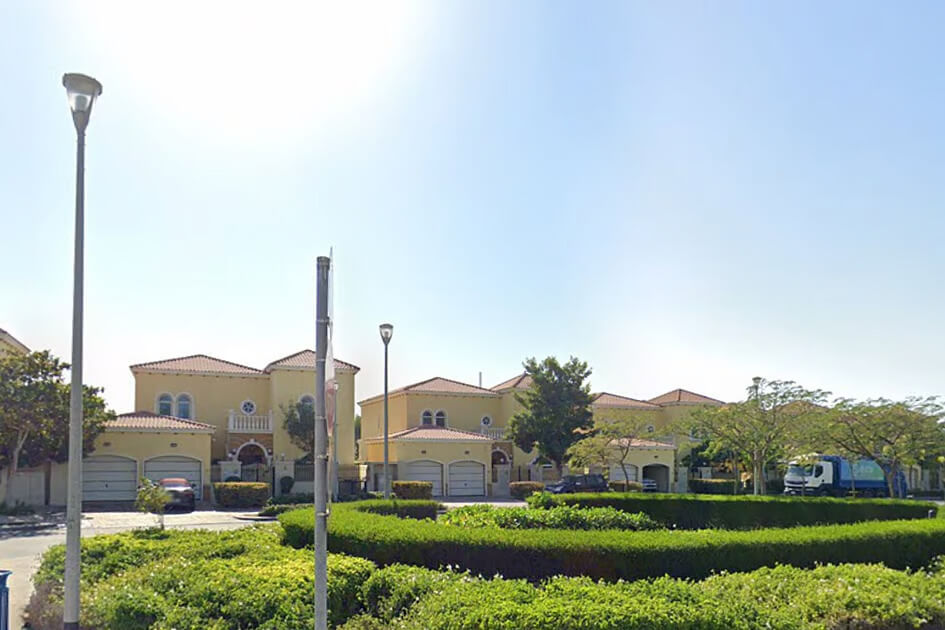In the third quarter of 2025, the villa and townhouse segment emerged as the top performer in Dubai’s property market, which continues to overcome global real estate headwinds. Dubai’s real estate market has remained remarkably strong despite a minor quarterly decline in overall sales value. This is supported by record high-end transactions, skyrocketing villa prices, and an increase in demand for rentals as the city draws more and more foreign investors and residents.
The Dubai Land Department (DLD) reports that Dh135.6 billion was sold in real estate during the third quarter. Even though that was a slight 9% decrease from the previous quarter, the number was still a strong 16% rise from a year ago, underscoring Dubai’s ongoing tenacity as one of the most desirable real estate markets in the world.
The entire transaction value for the first nine months of 2025 was Dh498.8 billion, highlighting the persistent investor confidence that continues to shape Dubai’s real estate market. The sharp increase in the cost of townhouses and villas has been one of the most noticeable developments. According to Allsopp & Allsopp, a real estate company, the average transaction price in this category increased by 21% from the previous year to Dh8.7 million. The ultra-high-net-worth individuals who are continuing to invest in Dubai’s most prominent communities, including Palm Jumeirah, Emirates Hills, Jumeirah Golf Estates, and Jumeirah Islands, are the reason for this acceleration.
The increasing demand for luxury properties is further demonstrated by a number of high-profile transactions. A Palm Jumeirah Frond M property sold for Dh40 million, a Wildflower villa in Jumeirah Golf Estates sold for Dh35.5 million, and a Jumeirah Islands villa sold for Dh35 million, according to Allsopp & Allsopp. These high-profile deals demonstrate the consistent flow of international millionaires and billionaires who view Dubai as a safe, luxurious investment destination in the face of global economic instability.
A number of factors, including Dubai’s investor-friendly tax structure, safe-haven attractiveness, top-notch infrastructure, and the UAE’s long-term residency and golden visa programs, are credited by industry watchers for this ongoing momentum. Geopolitical stability, year-round sunlight, and growing luxury amenities that appeal to wealthy expatriates and business owners have all contributed to the city’s attraction as a global center for finance and leisure.
With the average property price in Dubai rising to Dh5.1 million, a 28% year-over-year increase, the secondary market as a whole followed the luxury segment’s upward trajectory. The increasing number of families and long-term residents choosing to call Dubai home is reflected in the 28% increase in villa and townhouse transaction volumes from the previous quarter, according to DLD data.
Early indications of tightness were seen in the off-plan category, which normally drives future supply. In the quarter, about 6,176 units were finished, which is 12% less than a year ago, and 28,573 new units were introduced, which is 30% less than a year ago. Analysts caution that the supply-demand mismatch may expand as a result of this slowdown and rapid population rise. Nearly 600 new residents move in every day, so the mismatch may keep prices rising, particularly in the villa market where there is still a shortage of quality inventory.
According to Condor Developers’ executive director, Meera Sivaprasad, the most recent statistics clearly shows that the city has made its real estate ecosystem one of the most vibrant in the world. “As supply lags behind demand and luxury properties dominate the market narrative, Dubai appears firmly set to extend its status as a magnet for global wealth and high-end investment in the years ahead.” Property market consultant V S Bijukumar said a confluence of of rising villa prices, strong end-user demand, and an expanding expatriate base has positioned Dubai’s real estate sector for continued growth. Investors remain confident that the emirate’s property market — supported by sound fundamentals, forward-looking urban policies, and a globally trusted regulatory framework — will deliver sustained returns.
In Q3, Dubai saw 59,228 real estate transactions totaling Dh170.7 billion, according to fäm Properties. This represents yearly improvements of 17.2% in transaction volume and 19.9% in value. According to data from DXBinteract, 158,200 agreements totaling Dh498.8 billion were registered over the first nine months of the year, representing a 20.5 percent increase in volume and a 32.3 percent increase in value when compared to the same time in 2024. Additionally, Dubai’s rental industry has continued to grow. In comparison to the previous quarter, transaction volumes increased by 15% in Q3, while new rental contracts increased by 31%.
A 40% quarterly rise in rental transactions was reported by Allsopp & Allsopp, who attributed this to the flood of expats looking for long-term stability or new employment prospects. The consistent increase in demand for rental properties has reinforced Dubai’s position as a profitable buy-to-let market and further bolstered landlords’ yields.
